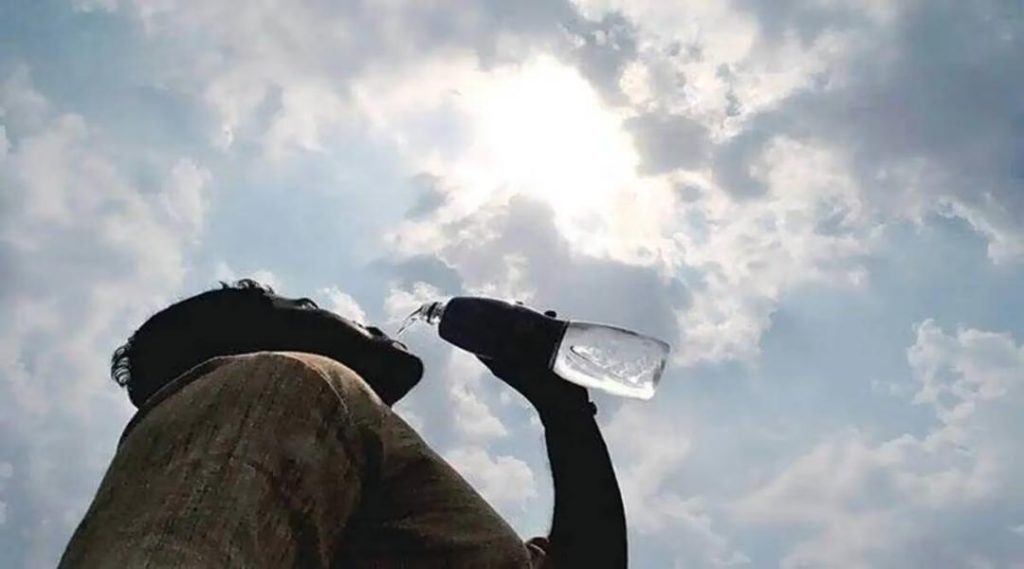
What Happens to the Body due to Extreme Heat?
During a heatwave, the body’s inability to regulate its internal temperature and eliminate heat gain increases the risk of heat exhaustion and heatstroke. The extreme heat can cause the body to overheat, leading to a range of symptoms that can be mild to severe. In this blog post, we will explore what happens to the body during a heatwave and the signs that you may be experiencing heat illness.
How the Body Regulates Temperature
The human body has a natural ability to regulate its temperature, thanks to the hypothalamus, a small region in the brain that acts as the body’s thermostat. The hypothalamus monitors the body’s temperature and sends signals to the sweat glands, blood vessels, and other organs to regulate heat gain and loss.
When the body temperature rises, the hypothalamus sends signals to the sweat glands to produce sweat, which evaporates and helps to cool the body. The body also increases blood flow to the skin, allowing heat to be released more efficiently. Additionally, the body can also increase its respiratory rate and heart rate to help dissipate heat.
Heat Exhaustion and Heatstroke
However, during a heatwave, the body’s ability to regulate its temperature can be impaired, leading to heat exhaustion and heatstroke. Heat exhaustion is a milder condition that occurs when the body is unable to cool itself efficiently, leading to a rise in body temperature. Symptoms of heat exhaustion include:
- Dizziness or fainting
- Nausea or vomiting
- Muscle cramps or weakness
- Fatigue or exhaustion
- Rapid pulse
If heat exhaustion is left untreated, it can progress to heatstroke, a life-threatening condition that requires immediate medical attention. Heatstroke occurs when the body’s temperature rises too high, causing damage to the brain and other vital organs. Symptoms of heatstroke include:
- High body temperature (usually above 103°F)
- Confusion or altered mental state
- Slurred speech
- Seizures or coma
The Strain on the Body
During a heatwave, the body is put under a significant amount of stress as it tries to cool itself. This stress can put a strain on the heart and kidneys, leading to a range of complications. The body’s blood vessels constrict to reduce blood flow to the skin and increase blood flow to the brain and other vital organs. This can lead to:
- Low blood pressure, which can cause dizziness or fainting
- Dehydration, which can cause symptoms such as headaches, dry mouth, and fatigue
- Kidney damage, which can lead to kidney failure if left untreated
5 Troubling Signs You May Have Heat Illness
According to a recent article by Times Now News, there are several signs that you may be experiencing heat illness. These include:
- Rapid Pulse: A rapid pulse can be a sign that your body is struggling to regulate its temperature. If your pulse is rapid and you are experiencing other symptoms such as dizziness or nausea, you may be experiencing heat exhaustion.
- Dark Urine: Dark urine can be a sign of dehydration, which is a common symptom of heat exhaustion. If your urine is dark yellow or amber-colored, you may need to increase your fluid intake to prevent dehydration.
- Muscle Cramps: Muscle cramps can be a sign that your body is dehydrated and lacking essential electrolytes. If you are experiencing muscle cramps, you should seek medical attention immediately.
- Nausea or Vomiting: Nausea or vomiting can be a sign of heat exhaustion, particularly if you are experiencing other symptoms such as dizziness or rapid pulse. If you are experiencing nausea or vomiting, you should seek medical attention immediately.
- Confusion or Altered Mental State: Confusion or altered mental state can be a sign of heatstroke, a life-threatening condition that requires immediate medical attention. If you or someone you know is experiencing confusion or altered mental state during a heatwave, you should seek medical attention immediately.
Conclusion
Heatwaves can be a serious threat to human health, particularly for vulnerable populations such as the elderly, young children, and people with pre-existing medical conditions. It is essential to take steps to prevent heat illness, such as staying hydrated, seeking shade, and avoiding strenuous activity during the hottest part of the day.
If you or someone you know is experiencing symptoms of heat exhaustion or heatstroke, you should seek medical attention immediately. Early treatment is essential to prevent complications and reduce the risk of long-term damage.
Source:
Times Now News. (2022). What happens to your body during a heatwave? 5 troubling signs you may have heat illness. Retrieved from https://www.timesnownews.com/health/what-happens-to-your-body-during-a-heatwave-5-troubling-signs-you-may-have-heat-illness-article-151367872/amp






